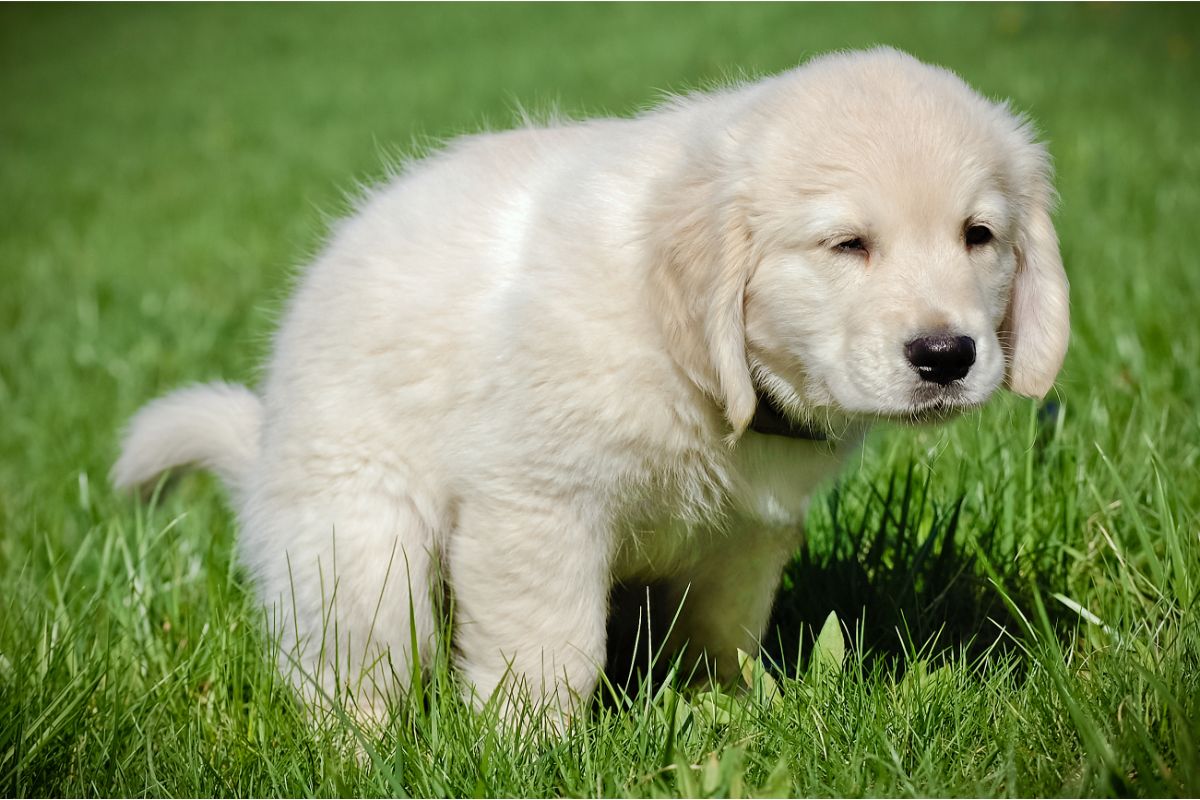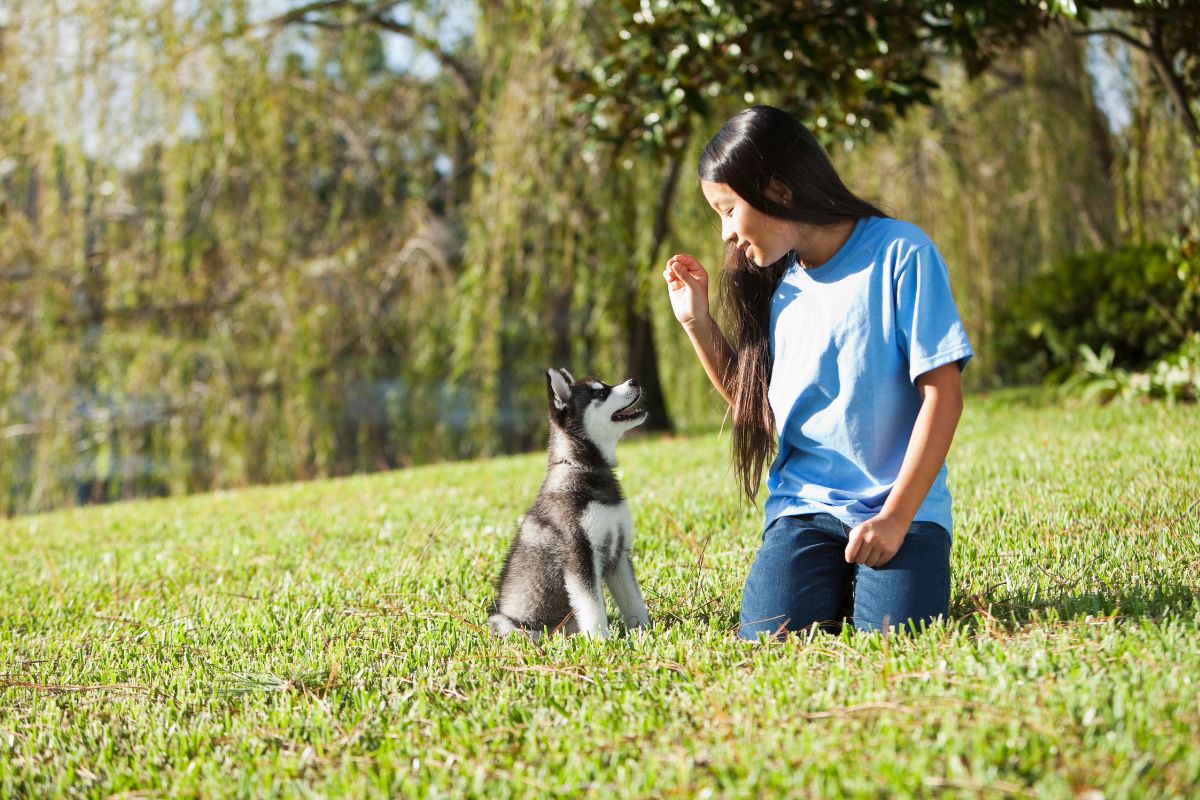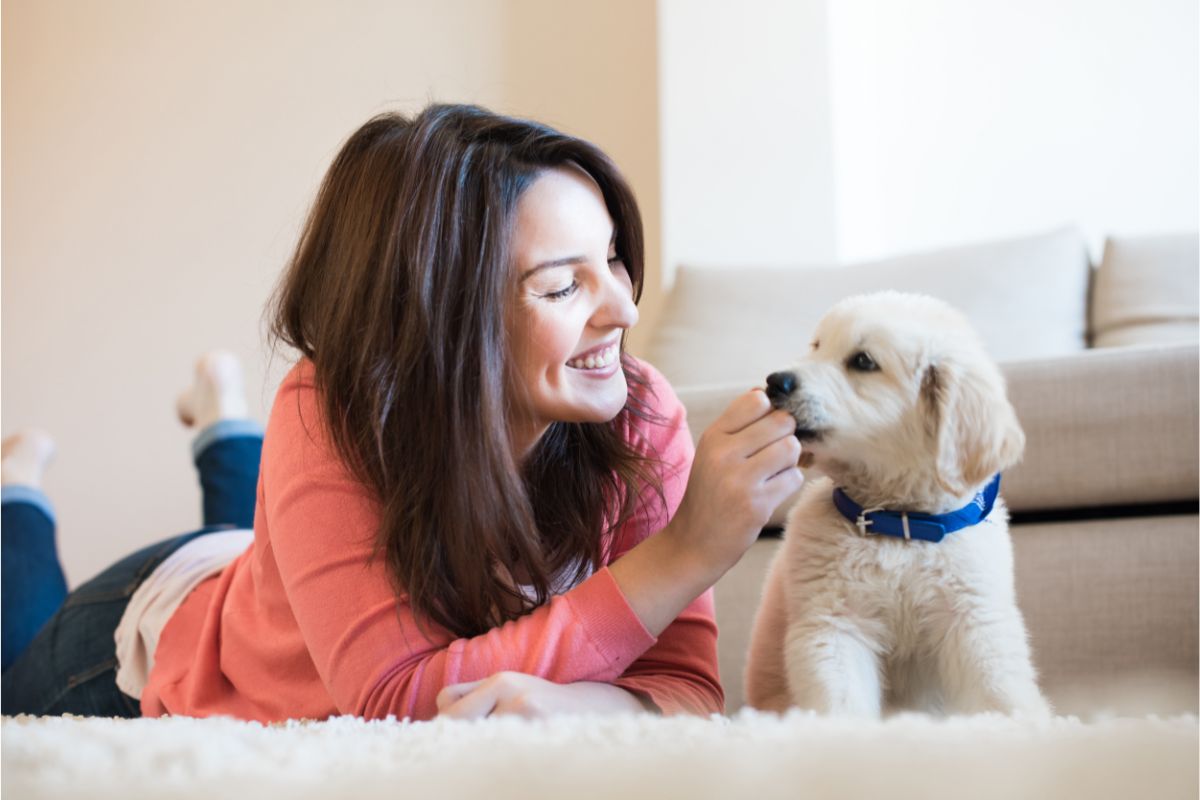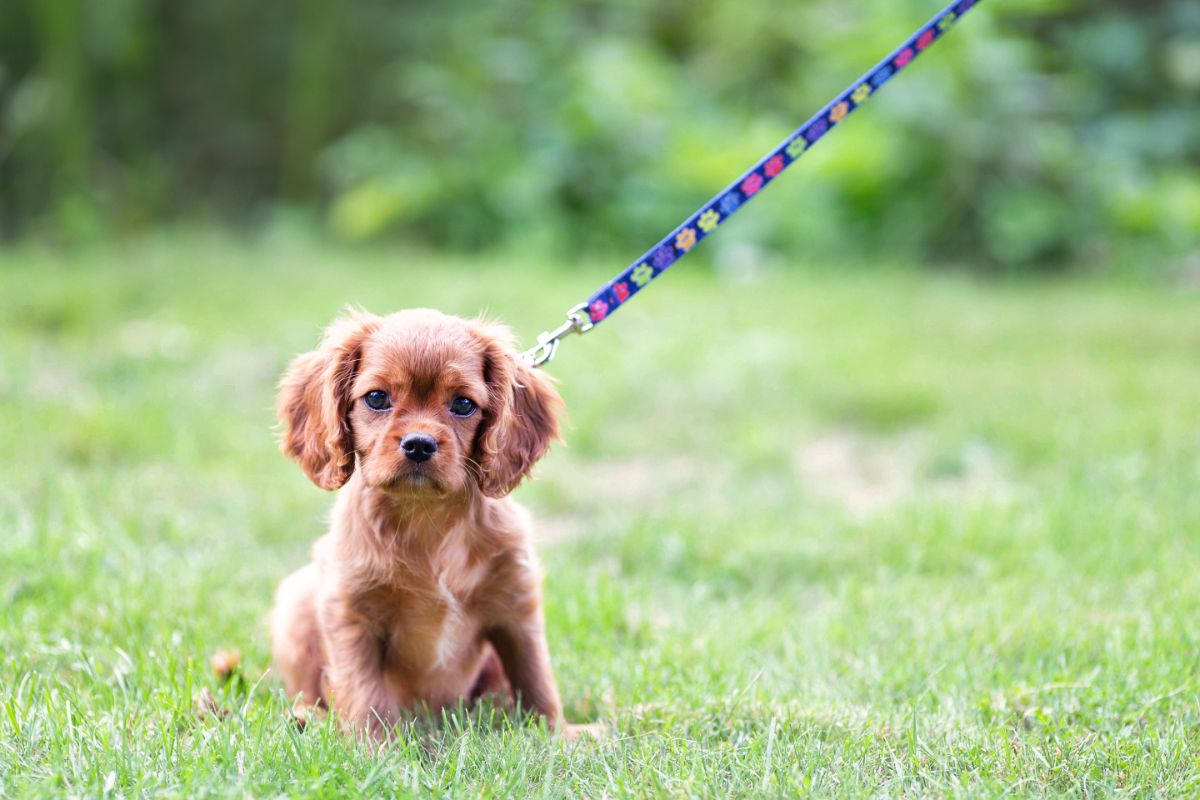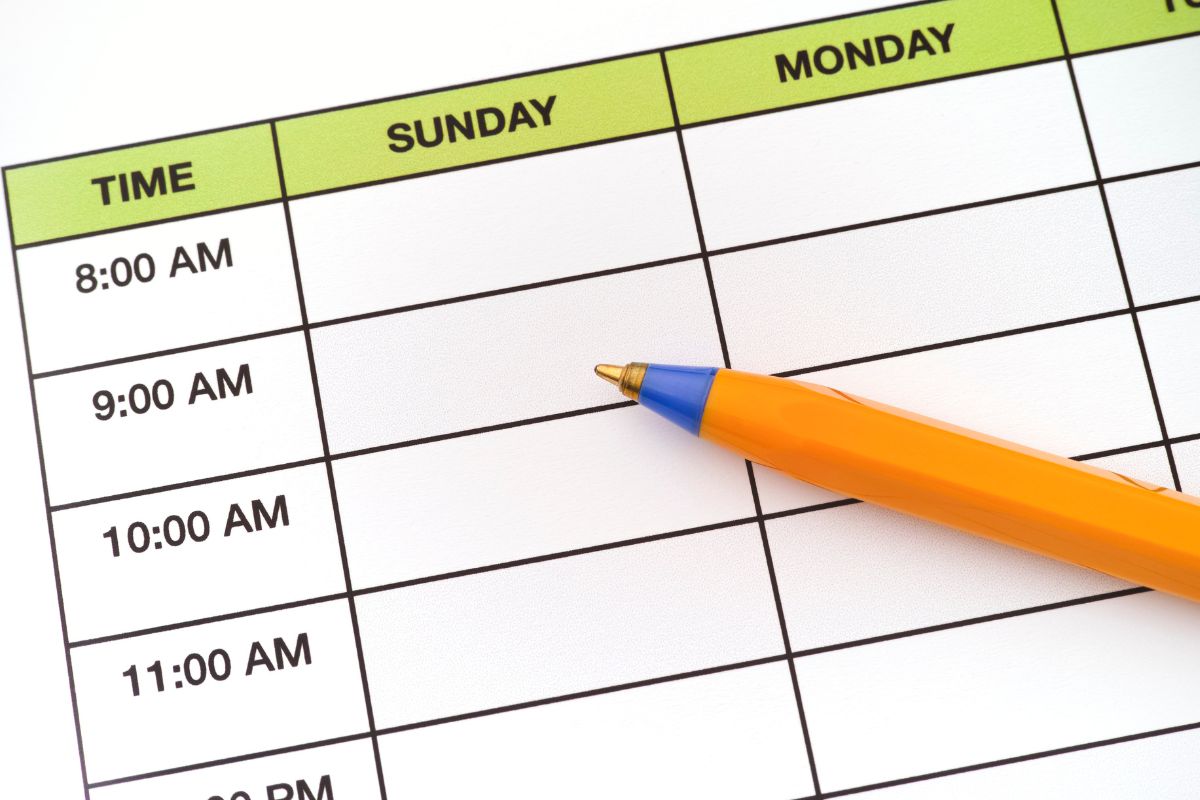When you have a puppy, you will want to make sure that you train them well to stop problems in their tracks. If you do not, then you may find that these problems stem into adulthood.
Puppy biting can sometimes appear cute, especially if they chew on your finger, but what might at first seem like no issue at all, can turn into a problem later on.
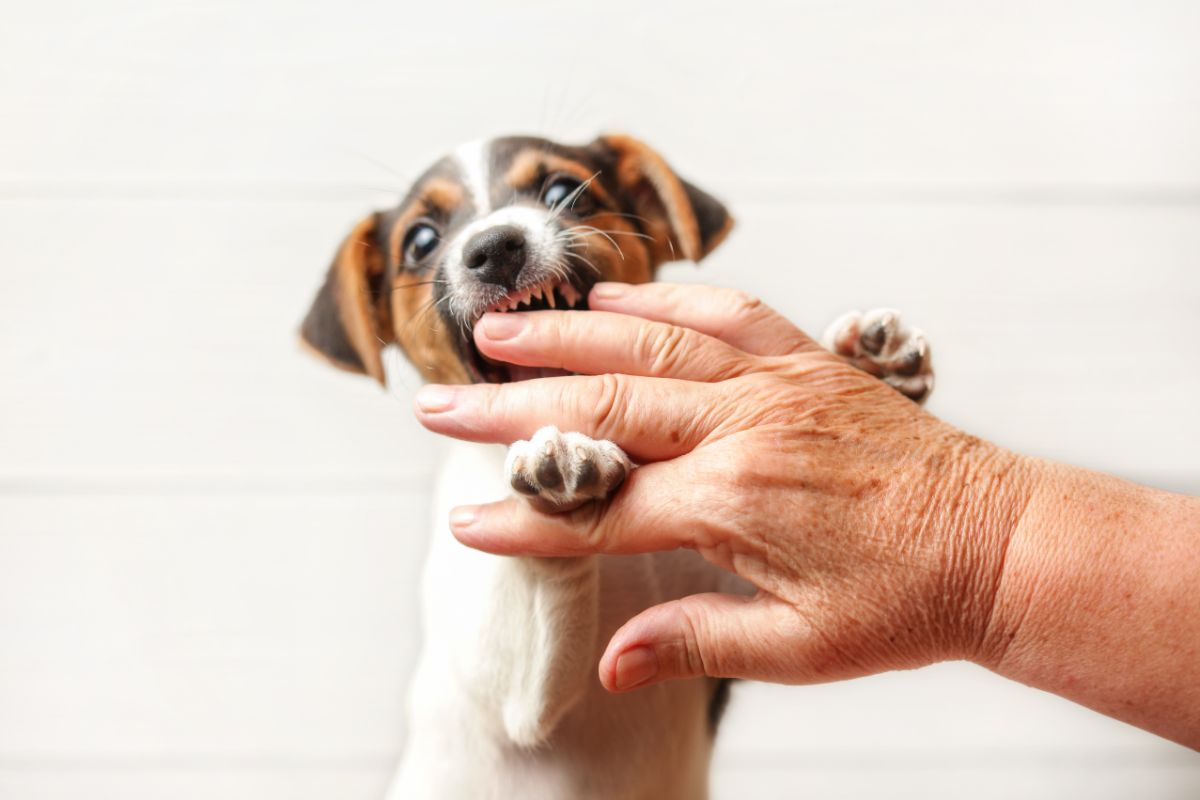
Often people are not given the correct advice when it comes to training their puppy not to bite. However, while your puppy is still developing its brain, you must teach them not to bite.
If this is something that you are currently concerned about with your puppy, then read on to find out all about puppy biting – what is normal, what might not be normal, and how you can stop it from turning into a habit.
When Is Puppy Biting Seen As Normal?
Fortunately, you will find that puppy biting is relatively normal while they are still a pup. The reason for this is that while they are still new to the world, they use their teeth and mouth to explore what is around them.
This means that they are not using their mouth for anything other than curiosity. However, some breeds are just prone to nipping or biting anyway. So here are the reasons why puppy biting is not always negative:
- Puppies (and dogs in general) tend to use their teeth when playing with each other. They do this for fun and to get the attention of the other dog.
- It is normal for a puppy to use their mouth and teeth to explore their surroundings, and that often includes the owner’s hands.
- For around two to three months all puppies will endure the process of teething which is particularly uncomfortable. This may cause them to need to bite and use their mouth.
- A retriever is a breed that has evolved into a dog that uses its mouth to hold things. For this reason, they may use their mouth to pick up your arm and hands.
- It is the same with any breed of dog that is used for herding too. They have been bred to nip at and chase things that are moving by them. For this reason, sometimes small children often get nipped at.
How Should You Stop A Puppy Biting?
When you have a puppy you will need to create some boundaries for them to stop biting (see also “Moving Beyond Puppy Biting“). One thing you will notice about these tactics is that it does not involve shouting at your puppy – this is key.
When your puppy nips or bites you, you will need to take yourself out of the situation. This means removing yourself from the situation while not causing drama for you or the puppy.
Instead of giving your puppy a ‘time out’, you are simply removing your attention from the puppy. This can be an effective way to get them to stop, especially if they realize that you are not playing anymore.
Just remember to not show any emotion, as this can cause your puppy to become excited and think that you are just playing with them.
- Once your puppy begins biting or nipping at you, remove your attention away from them. Show no emotion and just begin removing yourself from what is going on.
- Doing the above will show them that playtime has now finished.
- If you find that your puppy is still nipping and biting, then physically start removing yourself from the situation. Leave the room, or even walk behind the baby gate.
- Return after a few moments and see if your puppy has calmed down. If they have not, once again leave the room.
- Over a few days, you should start to see improvements in your puppy’s behavior.
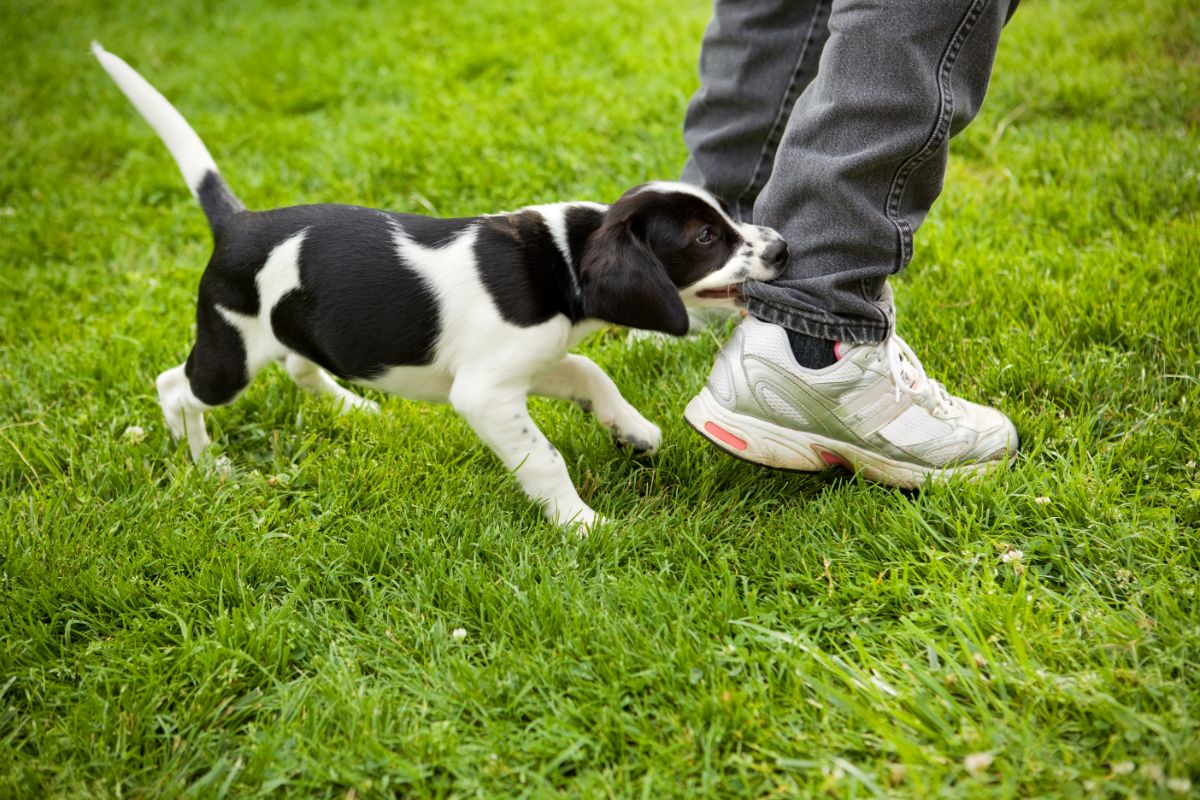
What About If This Doesn’t Work?
You might find that your puppy thinks that you are playing a game, however, there is another option. You can use your leg to act as a wall (please avoid the knee area) between you and the puppy.
The leg acts as a block and stops your puppy from biting at you. It also means that you will be using your hands too. Again, do not be dramatic or yell. You mustn’t show aggression or anything physical.
You will need to keep at this and be consistent to see changes in your puppy. It will happen!
Should You Physically Punish Your Puppy For Biting?
One thing you should never do is physically punish your puppy. Not only is this terrible advice, but it is also very cruel.
You might find that by using physical punishments your puppy may grow into a dog that has aggression and fear. This will mean that the dog will have behavioral problems that might even be considered dangerous.
Here are some things to think about:
- A puppy does not bite to be the dominant one. More often than not they are curious or playing. This means that you do not have to punish them in a physical way to get them to stop.
- Do not take matters into your own hands by forcing them to shut their mouth using your hand or by using a muzzle.
- Another thing you should not do is be aggressive with them. For example, pinning them to the floor while they are on their back. All of these punishments will make your puppy worse off.
Final Thoughts
It is normal for a puppy to bite and use their mouth. At this young stage of their life, they often use their mouth and teeth to explore. However, you may find that the nipping has become a little too frequent.
You will need to use the correct tactics to stop your puppy from biting. If you do not, you risk them becoming aggressive and fearful as they grow up.
For this reason, you will want to make sure that you do not physically punish your dog. Not only is it cruel, but it can take your puppy in a whole other direction of problems. Instead, you can train your puppy to stop biting by having patience.
Over time you will find that if you ignore your puppy biting and nipping, soon they will become bored and realize that the game is over.
- How To Teach Your Puppy Their Name Easily! - July 18, 2023
- Is Your Puppy Counter Surfing? Find Out How To Stop It! - July 18, 2023
- How To Train Your Puppy For Car Rides: Everything You Need To Know - July 18, 2023


